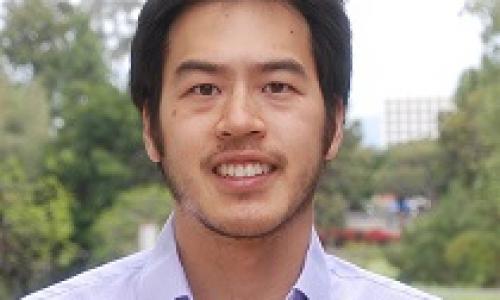
Professor Siryaporn and his team explore how mechanical forces regulate bacterial pathogenesis using an approach that combines techniques from biophysics, molecular biology, genetics, fluid mechanics, and computational modeling. The group's fundamental questions are: 1. What is the role of mechanosensation in bacterial virulence, 2. How does mechanosensation affect colonization, 3. What signaling mechanisms do bacteria use to detect and transduce mechanical stimuli? The Siryaporn lab uses mechano-genetics, microscopy, force measurement, and microfluidic techniques to understand how bacteria interact with and infect host cells. In particular, they explore how bacteria detect and respond to surfaces using a unique “sense of touch”. Their multi-scale approach looks at how interactions at the single-cell level drive the complex behaviors observed in large bacterial communities such as biofilms and microbiomes.
Ph.D., University of Pennsylvania
